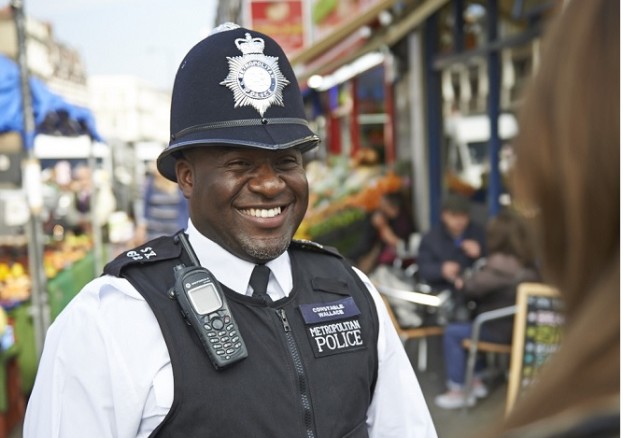
With 40% of London being from diverse communities and rising, and only 11% of police officers reflecting that, I think it’s really important that we are able to communicate effectively with our communities and have a visible presence.
BHM: It’s the 20th Anniversary of the MetBPA. Can you please tell us a little bit about the history and objectives of the MetBPA?
JH: I’ve been in the post since 28th May 2013. We have had eight male Chairs since conception; we have all been made up of different ranks and police staff grades. The MetBPA has been involved with so many ground breaking events over the years. The Macpherson Report allowed us to give a submission from both the community’s point of view as well as from the police’s. As we all came from the Black community, we were able to give a lot of ‘added value’ when it comes to looking at diversity in policing in the broader sense. This was very insightful to the panel, as were the Morris Inquiry in 2004 that looked at the issues of unfairness and race inequality in the Metropolitan Police Service (MPS). The Race and Faith Inquiry also covered similar issues.
diversity in policing in the broader sense. This was very insightful to the panel, as were the Morris Inquiry in 2004 that looked at the issues of unfairness and race inequality in the Metropolitan Police Service (MPS). The Race and Faith Inquiry also covered similar issues.
The MetBPA has three main objectives: firstly, to improve the working conditions for Black, Asian, minority ethnic officers and police staff in London. We achieve this by providing our members with a support network that addresses issues of unfairness in all its guises and offers advice to managers on how to deal with cultural and race issues. Secondly, we have an outward-facing role, which involves working within local communities to help enhance service delivery, and to allow access to policing from communities that do not necessarily have trust or confidence in the police. ‘Revival’ our anti-violence programme goes into our communities to talk about the issues that impacts on them and to help build trust and confidence in the police service.
Thirdly, our VOYAGE (Voice Of the Youth And Genuine Empowerment) programme looks after young people in London, affording them a BTEC qualification for Year 9 students, which is an additional qualification for when they go out into the jobs market. We have had about 3,000 young people going through the programme.
BHM: What made you want to become a police officer in the first place?
JH: There wasn’t really a lightbulb moment; I think it was a combination of my brother, who joined in the 1980s, and working for London Transport as a revenue inspector. We did a lot of work with the police with operations on the buses. Many of my colleagues left and ended up joining the police. I received positive encouragement to join from them and my brother, so I thought “what have I got to lose?” I also wanted to make a difference in my community and felt that joining the police would be a good way in which to do that.
BHM: Describe your best day on the job to date, and why it stands out in your memory.
JH: I do not have a specific best day but one role that stands out is my role as a family liaison officer which was one of the recommendations from the Macpherson Report. The role deals with families who have lost loved ones due to traumatic death. I think about the families I have dealt with, especially where I have been able to help my own communities where there is a massive mistrust of the police. I’ve been able to give them a voice, to allow them to be part of the investigation. Just knowing that I have been able to ease what is a very painful journey, and help them to find resolution, for me, is one of the best things I can do as a police officer.
BHM: The Commissioner wants to have a Service that looks and feels like London. How important is it to have a diverse force in London?
JH: With 40% of London being from diverse communities and rising, and only 11% of police officers reflecting that, I think it’s really important that we are able to communicate effectively with our communities and have a visible presence. If you look back in years gone by, local villages had a “Local Bobby” who was at the heart of their community. That is the relationship we should have with our communities, so for me it’s really important to get that back. Having a police service that reflects the community that it serves would also impact on broader issues around the disproportionality of the use of “Stop and Search” and the under representation of Black and Minority Ethnic (BME) officers and staff within the Service.
